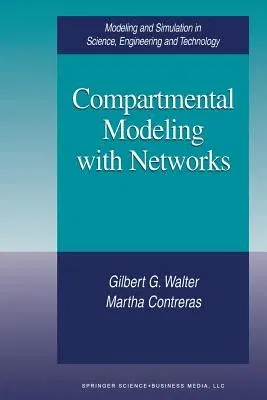Gilbert G Walter
(Author)Compartmental Modeling with Networks (Softcover Reprint of the Original 1st 1999)Paperback - Softcover Reprint of the Original 1st 1999, 23 October 2012

Qty
1
Turbo
Ships in 2 - 3 days
In Stock
Free Delivery
Cash on Delivery
15 Days
Free Returns
Secure Checkout
Part of Series
Modeling and Simulation in Science, Engineering and Technolo
Print Length
250 pages
Language
English
Publisher
Birkhauser
Date Published
23 Oct 2012
ISBN-10
1461272076
ISBN-13
9781461272076
Description
Product Details
Authors:
Book Edition:
Softcover Reprint of the Original 1st 1999
Book Format:
Paperback
Country of Origin:
NL
Date Published:
23 October 2012
Dimensions:
23.39 x
15.6 x
1.45 cm
ISBN-10:
1461272076
ISBN-13:
9781461272076
Language:
English
Location:
Boston, MA
Pages:
250
Publisher:
Weight:
385.55 gm

